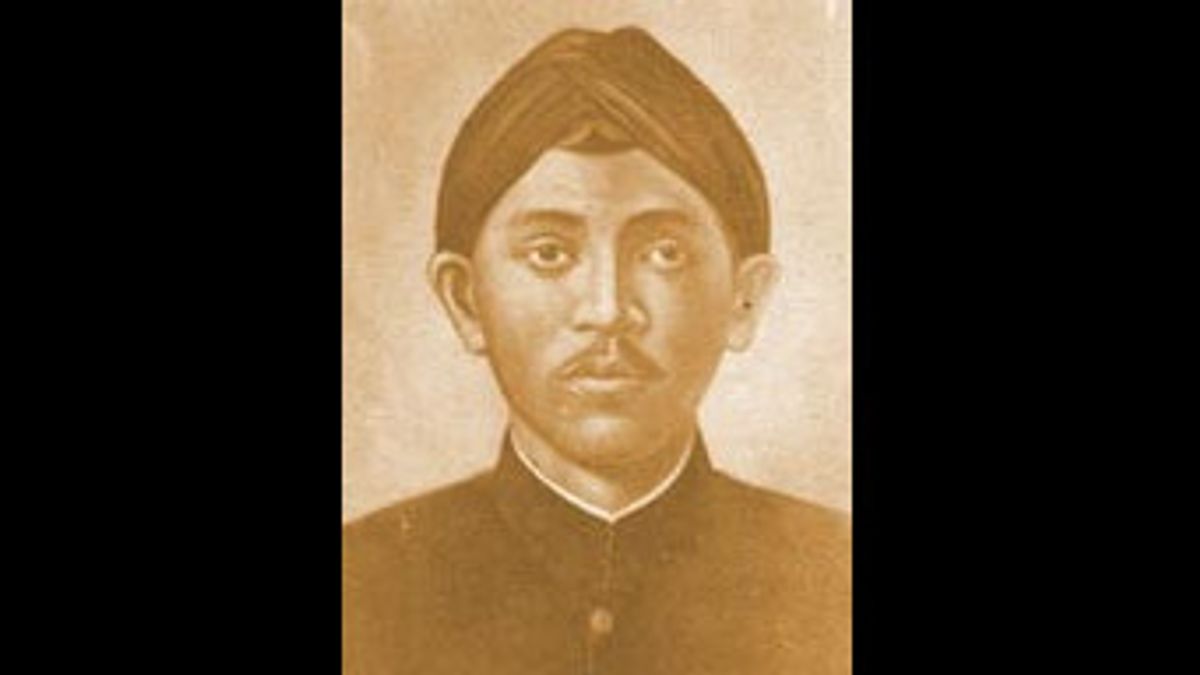JAKARTA - Tjipto Mangoenkoesoemo is a fragrant name in the history of national awakening. Tjipto's progress has been great for the country. He was known as a reliable doctor and knight who fought the Dutch colonial government. For him, there was no compromise for colonialism. This independent attitude has been ingrained since Tjipto became a doctor. Mainly to treat colonial "disease" with a revolutionary "spirit of resistance". Far beyond the times.
Tjipto was born in Ambarawa, Central Java in 1886. He is the oldest of eleven children. His father was a low level government employee who had also worked as a Malay language teacher. Tjipto was born into a family that valued education, which enabled the eleven brothers - including Goenawan and Budiardjo - to receive higher education.
Through education, Tjipto grows up to be an independent, critical, intelligent person. He has proven this since he was a student at the bumiputra medical school, School tot Opleiding van Indische Artsen (STOVIA). At STOVIA Tjipto, he spends a lot of time reading books and thinking.

When the others tried to fit in with the colonial or priyai style life, Tjipto was hardly tempted. He always kept away from that kind of lifestyle. Tjipto is fascinated by the sense of justice. Tjipto then easily completed his education at STOVIA in 1905.
"After graduating from STOVIA, Tjipto became a doctor. Not long after, a plague (bubonic plague) emerged in the area of Malang, East Java. Tjipto offers his services as a volunteer, to combat the plague. Thanks to his assistance, Tjipto received an award from the Dutch on the island of Java, "said Kenji Tsuchiya in the book Democracy and Leadership: The Awakening of the Taman Siswa Movement (1992).
No kidding. Tjipto's merit was the Ridderkruis of the Oranje-Nassau Order in 1912. The gift of the Dutch Queen Wilhelmina was given to Tjipto for his courage to enter rural areas in Malang to eradicate bubonic plague. Moreover, Tjipto did not use a mask or cover his nose and mouth. His attitude was different from that of many other doctors dealing with plague. However, Tjipto rejected the award.

"From here emerged two names that will last in the history of Indonesia's revival — two people who are as polite as Mas Wahidin: Cipto Mangunkusumo, a doctor; he deliberately put the award star of the Queen of the Netherlands on the buttocks as a protest, "wrote Goenawan Mohamad in his writing in Tempo Magazine entitled BO (2008).
The protest became a form of great humor wrapped in criticism of the colonial authorities. Moreover, Tjipto brought the gold star to Batavia to be returned to the giver. The star was then put by Tjipto near the buttocks. As a result, if a soldier must respect the gift of the Dutch Queen Wilhelmina, then the soldier must respect Tjipto's butt.
Tjipto's "eccentric" criticismTjipto's allusion to the Dutch colonialists was not done just once. On various occasions, Tjipto, who was impulsive, emotional and radical, often refused to listen to or obey the Dutch government's prohibitions.
In his heart, Tjipto believes that all prohibitions are a form of insult to the native people. It was as if the natives were slaves in their own home. He refused to compromise on the Dutch. In a way that tends to be eccentric, Tjipto continues to fight back.
Tjipto's courage to penetrate the exclusivity of Societeit - where the Dutch party is rich - is one of them. Historically, Societeit was only accessible to rich and very rich Europeans. The poor Dutch and the native people are prohibited from entering.
However, Tjipto had the courage to enter a Societeit which was full of Dutch people. Even so, Tjipto did not appear with typical European makeup. Instead, Tjipto wore typical Indonesian clothing, such as batik cloth and a Klaten woven striated coat.
"The entire Sociteit Building was chaotic because of an inlander (native) who was considered insolent. Immediately an opas (guard) was ordered to drive Tjipto out of the building. So Cipto directly cursed opas and the people near him in fluent Dutch. So they were amazed because they were influenced by Tjipto's authority. That is the way Cipto protests against the politics of racial differences, "said Soegeng Reksodihardjo in Dr. Cipto Mangunkusumo (1992).
[/ read_more]
Tjipto's "insolence" to the colonial government was getting worse. Fearless Tjipto once accidentally came to a train station. When a special train for white people arrived, Tjipto then bought a ticket for the train. Long story short, he gave the ticket to a beggar. After the beggars entered, the shouts of noni-noni and Dutch sinyo were immediately heard.
In fact, at one time Tjipto dared to ride his chariot in front of the Surakarta Kasunanan Palace, at which time the native people were strictly prohibited from riding horse-drawn carriages. This step was taken by Tjipto as a form of hatred for the colonialism and feudal systems.
"He drove his horse-drawn carriage in front of the sultan's palace grounds, because only the sultan and princess were allowed to walk there at that time," added Takashi Shiraishi in the book 1000 Tahun Nusantara (2000).
Not only through action, Tjipto is also active in conveying criticism through writing. At that time, Tjipto's writings filled many local newspapers. Tjipto, as revealed by Irna HN Hadi Soewito in Soewardi Soerjaningrat's book in Pengasingan (1985).

Hadi Soewito analyzed Tjipto's language style which is very interesting when criticizing. The writing convinces the reader. The sentences are short, concise, and contain the words chosen appropriately. It's straightforward and easy to understand. When criticizing the submissive nature of the Javanese, for example. At that time Tjipto analogized the obedient attitude of the Javanese as a "disease."
So, said Tjipto, "the cure" is only one: the spirit of resistance. Tjipto made Javanese Prince Diponegoro as an example of the Javanese who dared to fight the Dutch in the Java War (1825-1830). Diponegoro's resistance, said Tjipto, implied the meaning that the Javanese could break the myth of always being obedient who tended to say "yes" or "amen." Tijpto urged that the sentences be changed to "opponent!"
"He (Diponegoro) has indeed failed. Still I think you, like me, should not judge people's work solely by its success. Besides that, it is not my intention to judge Diponegoro's toughness. I just want to show that contrary to what some Javanese people believe, it actually has a deep ethical basis, a basis for building a moral resource that should make us optimistic about the possibility of the rise of our golden age, "said Tjipto in his essay entitled Lets. over den Javaan which means "Some Notes on the Javanese" (1913).
MEMORY Other[/ read_more]
The English, Chinese, Japanese, Arabic, and French versions are automatically generated by the AI. So there may still be inaccuracies in translating, please always see Indonesian as our main language. (system supported by DigitalSiber.id)









